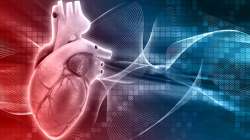Cardiac Arrest vs Heart Attack: How to distinguish between them and their symptoms
Cardiac arrest and heart attack are frequently mistaken to be the same. However, they are quite dissimilar. Understand the difference.

Heart disease is a broad term encompassing various cardiovascular conditions, including coronary artery disease, cardiac arrest, and heart attack. Heart disease is a leading cause of death worldwide, but many forms of heart disease can be preventable or effectively managed with lifestyle modifications and medical interventions. Many confuse cardiac arrest and heart attack, both are serious medical conditions related to the heart, but they are distinct in terms of their causes, mechanisms, and effects on the body.
Heart Attack
A heart attack, often referred to as a myocardial infarction, happens when one or more coronary arteries, which carry blood to the heart muscle, become blocked. This obstruction typically results from the development of a blood clot, which blocks the blood supply to a section of the heart. Heart muscle cells die as a result of inadequate blood flow.
A heart attack can cause a variety of symptoms, but they frequently include chest pain or discomfort, shortness of breath, perspiration, dizziness, and pain that radiates to the arm, shoulder, neck, jaw, or back. During a heart attack, prompt medical intervention is crucial to restoring blood flow to the damaged area and preventing further damage to the heart muscle.
Cardiac Arrest
On the other side, cardiac arrest is a sudden loss of heart function. It happens when the heart's electrical circuitry isn't functioning properly, leading to ventricular fibrillation or ventricular tachycardia, two irregular cardiac rhythms. The heart beats quickly and erratically during these aberrant rhythms, making it difficult for the heart to adequately pump blood throughout the body.
The typical symptoms of cardiac arrest include loss of consciousness, cessation of breathing, and the absence of a pulse. Prompt medical attention is essential to return to a healthy heart rhythm and circulation. This includes doing CPR and using a defibrillator.
It's important to keep in mind that a heart attack can make cardiac arrest more likely since the injured heart muscle can cause irregular heartbeats. But cardiac arrest can also happen suddenly and without any prior symptoms of heart disease, frequently as a result of other factors such as electrical irregularities, drug overdoses, drowning, or severe trauma.
In conclusion, cardiac arrest is the sudden loss of heart function brought on by an irregular heart rhythm, whereas a heart attack is caused by a blockage in the coronary arteries, resulting in a shortage of blood supply to the heart. Although both illnesses demand urgent medical care, their underlying causes and mechanisms are different.